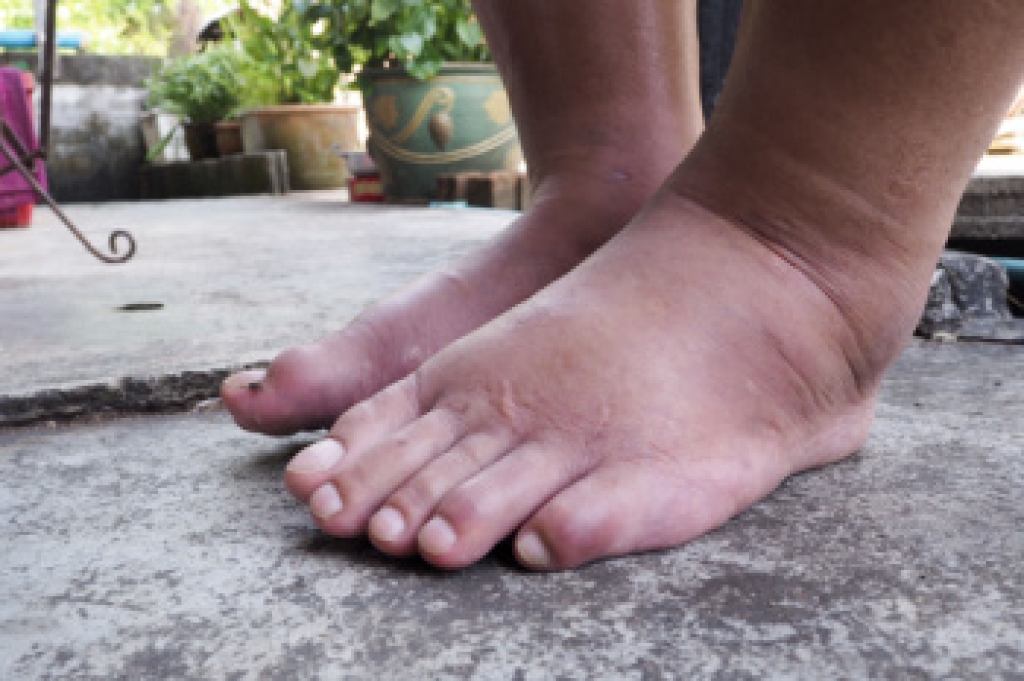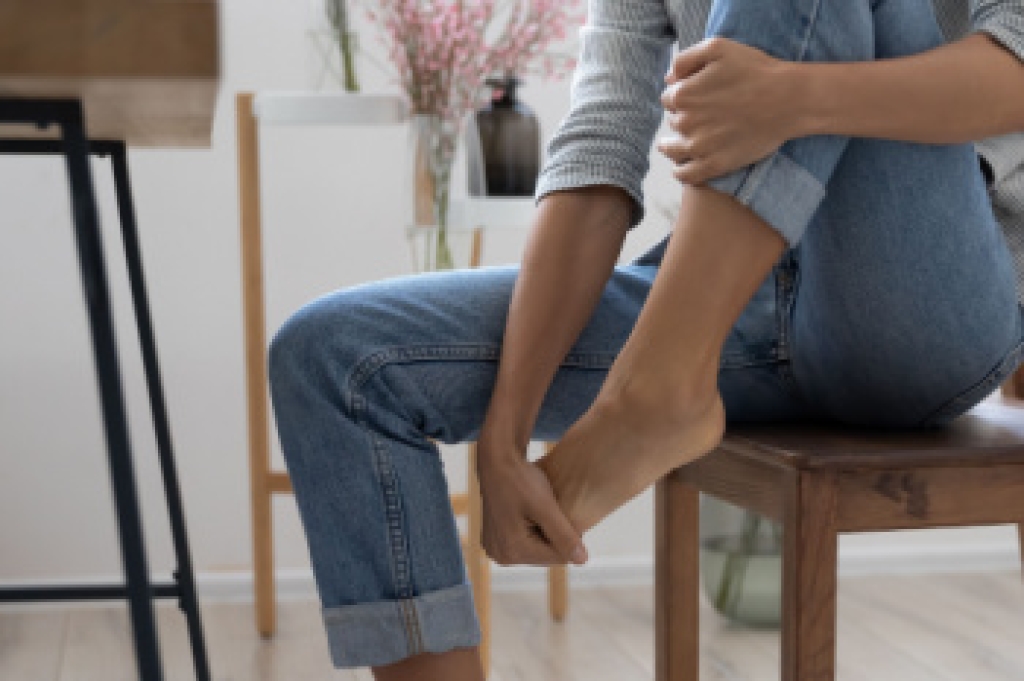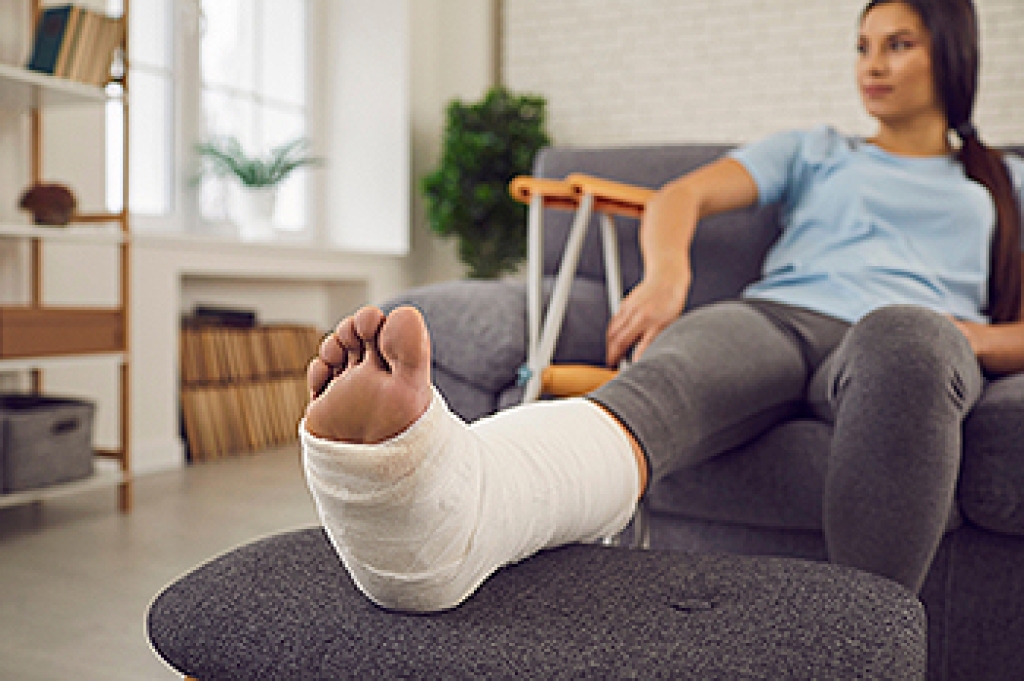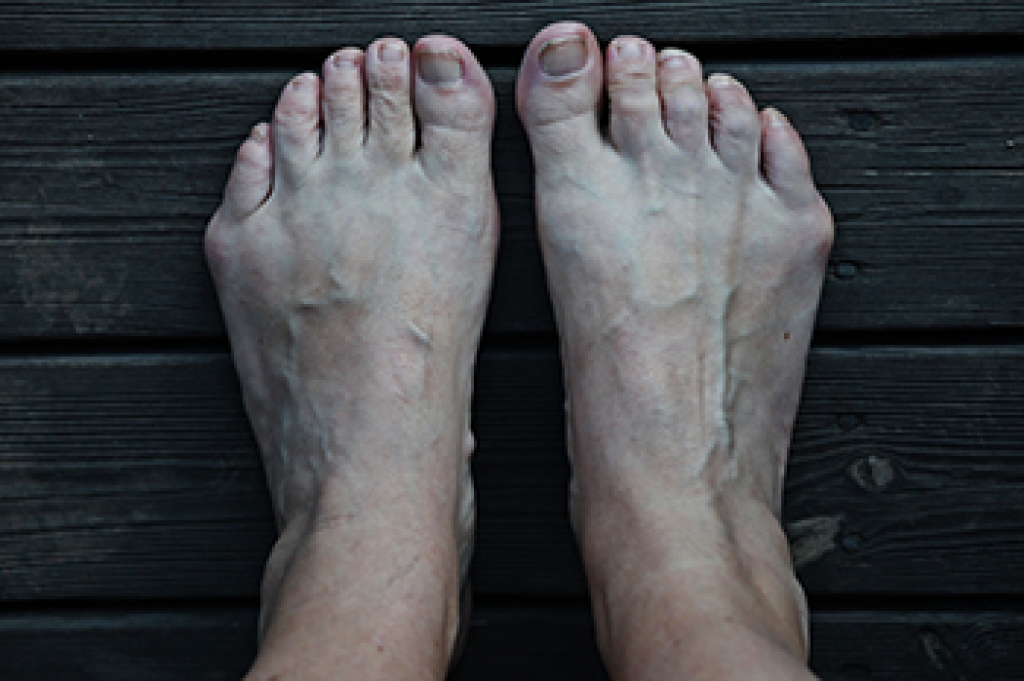
Cankles describe a condition in which the ankle and lower leg appear to blend without a visible curve or separation. They often develop when swelling or fat accumulation occurs due to fluid retention, circulation issues, weight changes, or long periods of standing or sitting. Symptoms include a heavy, tight feeling, aching skin that feels stretched, and shoes that feel suddenly snug. The ankle bones may be difficult to see, and the lower leg can look uniformly thick. A podiatrist begins with a detailed exam and medical history to determine contributing factors, such as vascular changes, inflammation, or foot mechanics. Diagnostic imaging and circulation testing may be involved. Treatment can include compression guidance, custom orthotics, lifestyle changes, and coordination with other providers when needed. Early attention may reduce progression and improve comfort during daily activities. If you think you have cankles, it is suggested that you make an appointment with a podiatrist for evaluation and treatment.
Ankle pain can be caused by a number of problems and may be potentially serious. If you have ankle pain, consult with one of our podiatrists from Lakeside Foot and Ankle Center. Our practitioners will assess your condition and provide you with quality foot and ankle treatment.
Ankle pain is any condition that causes pain in the ankle. Due to the fact that the ankle consists of tendons, muscles, bones, and ligaments, ankle pain can come from a number of different conditions.
Causes
The most common causes of ankle pain include:
- Types of arthritis (rheumatoid, osteoarthritis, and gout)
- Ankle sprains
- Broken ankles
- Achilles tendonitis
- Achilles tendon rupture
- Stress fractures
- Bursitis
- Tarsal tunnel syndrome
- Plantar fasciitis
Symptoms
Symptoms of ankle injury vary based upon the condition. Pain may include general pain and discomfort, swelling, aching, redness, bruising, burning or stabbing sensations, and/or loss of sensation.
Diagnosis
Due to the wide variety of potential causes of ankle pain, podiatrists will utilize a number of different methods to properly diagnose ankle pain. This can include asking for personal and family medical histories and of any recent injuries. Further diagnosis may include sensation tests, a physical examination, and potentially x-rays or other imaging tests.
Treatment
Just as the range of causes varies widely, so do treatments. Some more common treatments are rest, ice packs, keeping pressure off the foot, orthotics and braces, medication for inflammation and pain, and surgery.
If you have any questions please feel free to contact our offices located in Leesburg and The Villages, FL . We offer the newest diagnostic tools and technology to treat your foot and ankle needs.




